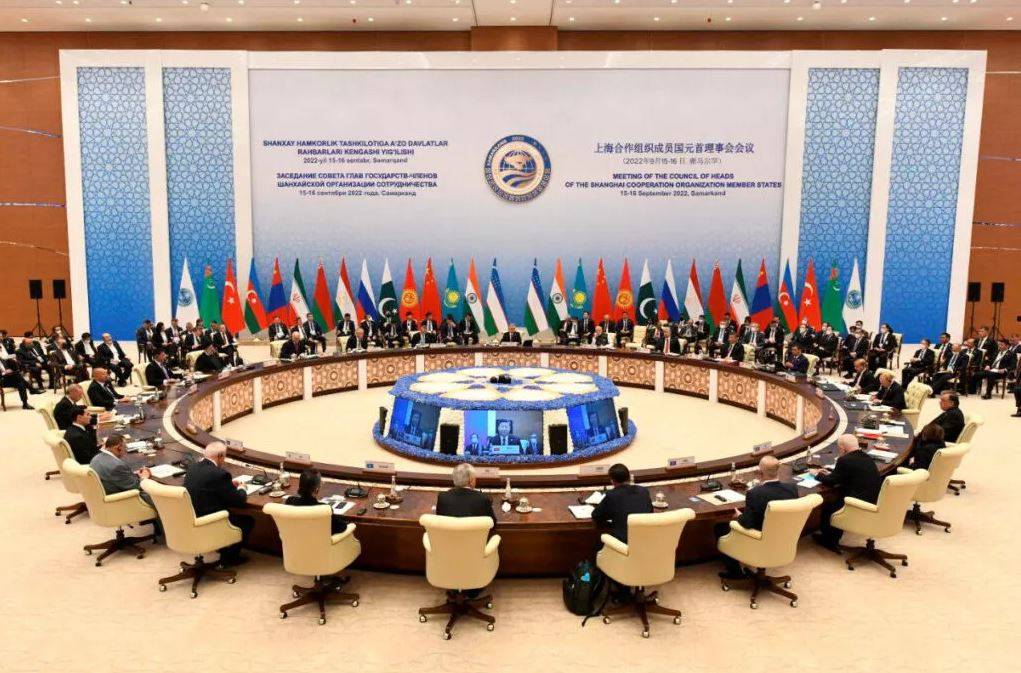1304 Views
Europe’s Worst Fear: An Eastern Axis Dismantling the Western Order
The geopolitical landscape has been rapidly shifting in recent years, and nowhere is this more visible than in the growing convergence among Iran, China, Russia, and North Korea. Their overt cooperation at the Shanghai Cooperation Organization (SCO) summit, and especially at the Beijing military parade, has set off alarm bells across Europe. For European policymakers, this trend is not merely tactical coordination but rather a sign of a broader challenge to the Western-centric international order that has dominated global politics since World War II.
From Brussels to Berlin, European leaders increasingly frame the convergence of Iran, Russia, China, and North Korea as an “authoritarian alliance.” European analysts stress that these partnerships are not just regional collaborations but a deliberate project to erode the legitimacy of the system built on Western rules, institutions, and norms. For Europe, this poses a profound strategic challenge, as its foreign and security policy stability depends on the rules-based international order—particularly NATO, the European Union, and transatlantic ties.
Labeling this convergence an “authoritarian alliance” by European officials suggests that the union is defined less by internal cohesion than by opposition to the West. Such framing enables European leaders to strengthen NATO solidarity, justify sanctions, and reinforce transatlantic unity. At the same time, however, this convergence reveals Europe’s concern: the recognition that alternative power centers are openly challenging Western dominance and that Europe is no longer among the sole global leaders.
Moreover, European media have been closely tracking this convergence, interpreting it as more than symbolic alignment. Their analyses often emphasize that the SCO summit and Beijing’s military parade are steps toward constructing a parallel international order—what some call the “Eastern Axis.” This project has moved beyond rhetoric, manifesting in multilateral agreements, joint statements, and coordinated criticism of Western interventionism.
For Europeans, the emergence of an alternative order signals the erosion of their global influence. Already burdened by challenges such as Brexit, economic stagnation, and internal political divides, European powers now face a rival structural framework that drastically weakens their bargaining power. Thus, the media framing reflects both the seriousness of the trend and Europe’s anxiety over lacking the tools to stop or reverse it. In fact, Europe appears to be edging toward exclusion from the international system’s central game.
Perhaps the most tangible concern for European policymakers is military convergence, expressed in joint drills and parades. The participation of Iran and Russia in China’s military display in Beijing was particularly alarming for European defense officials. These demonstrations are not only propaganda exercises but also indicators of genuine capabilities for strategic cooperation and synergy.
For NATO and its European members, such displays are perceived as a “security threat against Europe.” Their reasoning is straightforward: the more these states deepen military ties, the more capable they become of countering NATO’s influence in Eurasia, projecting power into sensitive regions, and complicating Europe’s defense planning. With the ongoing war in Ukraine and rising tensions in East Asia, European leaders fear that the SCO may gradually evolve into a military bloc that undermines NATO’s deterrence.
Another dimension of this rapprochement troubling Europe is its economic and financial aspect. Both Iran and Russia—heavily sanctioned by the EU and the U.S.—have increasingly sought to bypass the Western financial system through the use of national currencies and enhanced energy cooperation with China. These efforts have accelerated under SCO initiatives and bilateral agreements.
European officials fully understand that such measures directly undermine the effectiveness of Western sanctions. For instance, Russia’s oil sales to China or Iran’s expanding role in Asian energy markets dilute the pressure of sanctions. Europe’s concern is not only economic but also strategic, since sanctions regimes are among its most critical foreign policy tools, particularly since Russia’s invasion of Ukraine. If alternative trade mechanisms grow robust enough, Europe will lose one of its few non-military levers of influence.
As a result, the rise of this axis represents an unprecedented challenge to the Western rules-based order. Yet this challenge is not merely military or economic but also fundamental and ideological. The Eastern bloc, through its convergence at Beijing’s parade and the SCO summit, seeks to establish an alternative Eastern axis. This development, in addition to escalating security threats for Europe, directly undermines the effectiveness of sanctions. The future of this rivalry will depend on the West’s ability to strengthen internal cohesion and present a compelling counter-vision.
Translated by Ashraf Hemmati from the original Persian article written by Amin Mahdavi

Comment
Post a comment for this article